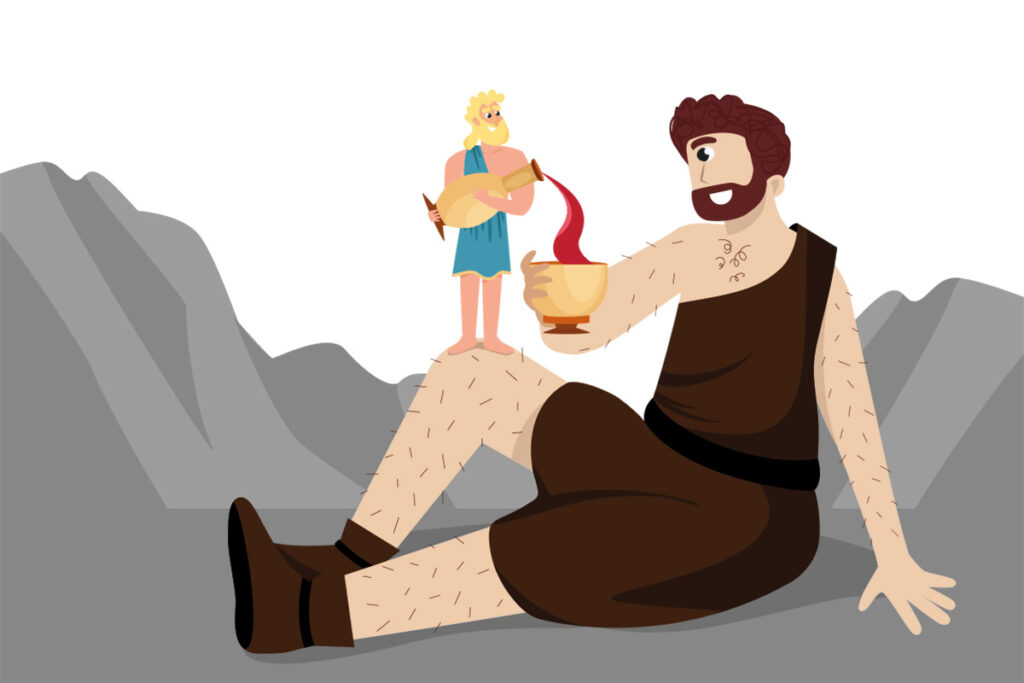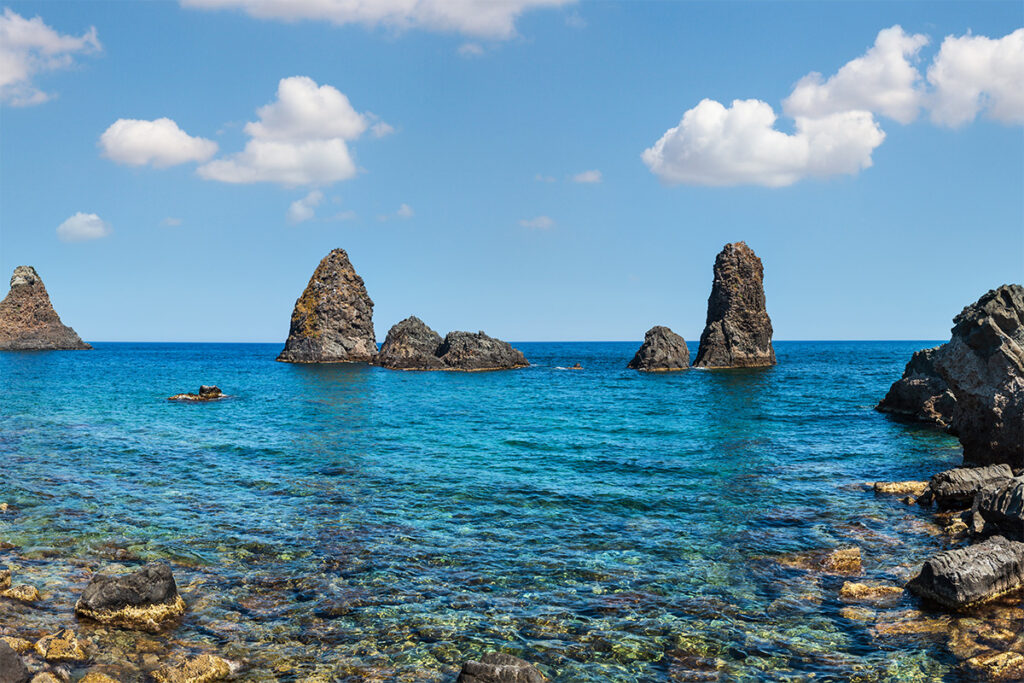The legend of the Greek hero, who managed to escape from the cyclops thanks to his cleverness, gives rise to the myth of the stacks of Aci Trezza
Today I will tell you the story of the cunning Ulysses who, during his long journey by ship returning from the Trojan War, lost his way to Ithaca and stopped in many places, each of which hid an adventure. Many of these took place in Sicily and one, among all, has become famous: that of his meeting with the Cyclops Polyphemus, son of the sea god Poseidon.
Having arrived on the Island of the Cyclops, near the volcano Etna, Ulysses, who in addition to being clever was also very curious, wanted to explore the area to see these legendary one-eyed giants up close. He got off his ship with twelve brave men and found a gigantic cave filled with enormous cheeses. His companions begged him to steal the food and run away, but instead he wanted to wait for the Cyclops, who had brought his sheep to graze outside the cave, to see if he would give him the food out of hospitality. It was a serious mistake because Polyphemus, returning to the cave, moved a boulder in front of the opening, closing the exit. When Odysseus revealed himself asking for hospitality, the Cyclops began to eat his men two at a time.
Not being able to kill him (who would have moved the boulder otherwise…), Ulysses came up with a plan. He offered him some wine, and the Cyclops thanked him, telling him that as a gift he would eat it last and asked him his name. Ulysses replied with the famous phrase: “Cyclops, do you ask my glorious name? Of course, I’ll say it; and you give me the hospitable gift as you promised. No one I have a name: No one calls me mother and father and all my companions.” Stunned by the wine, Polyphemus then fell into a deep sleep. With the six remaining men, Ulysses took an enormous wooden trunk, burned the tip in the fire that Polyphemus kept lit inside the cave, and pierced the Cyclops’ only eye, making him blind.
Her screams of pain attracted the other Cyclops. Once they reached the cave, they asked him who was hurting him, and Polyphemus replied, “No one!” Believing him to be drunk, the Cyclops left.
Polyphemus then had to open the entrance to the cave to let the sheep out. Ulysses and his men attached themselves under the animals so that the Cyclops, who touched everything that passed through the entrance, would not notice their escape. Once he realized that the Greeks had managed to escape, Polyphemus began throwing huge boulders in the direction of the sea in the hope of being able to hit their ship. Ulysses, however, once safe, made another mistake, revealing his real name to the Cyclops: “If anyone asks you who blinded you, answer that it wasn’t No one but Ulysses of Ithaca.” Having discovered his real name, Polyphemus begged his father Poseidon never to let him return to his homeland: “Listen Poseidon, if it is true that I am your son and you are my father, grant me that Ulysses, son of Laertes, destroyer of cities, never returns at home, but if it is destined for him to return home and see his loved ones again, he may arrive late and badly, after having lost all his companions and finds trouble in his home.”
From the story, which is contained in the IX book of the Odyssey, comes the myth of the stacks of Aci Trezza, the enormous rocks that emerge from the sea in front of the small and characteristic town in the province of Catania, a hamlet of Aci Castello, a fishing village made famous not only from Homer’s Odyssey but also from the novel I Malavoglia by Giovanni Verga. The rocks would be, in fact, precisely those thrown by Polyphemus to hit Ulysses and his fleeing companions. The stacks are today a tourist attraction and, together with the Norman castle of Aci Castello, are the symbols of these beautiful towns in the province of Catania.





Comments are closed.